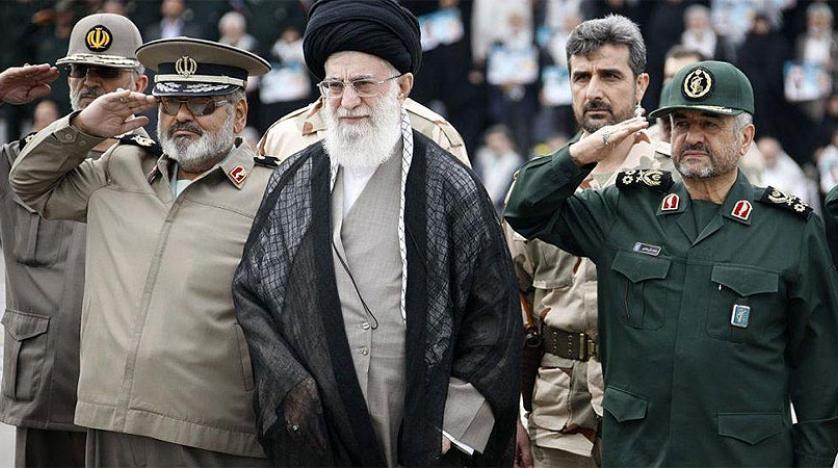West can pressure Iranian regime by supporting the people
د.مجيد رافيزادا: بإمكان الغرب الضغط على نظام الملالي بمساعدة ودعم الشعب الإيراني
Dr. Majid Rafizadeh/Arab News/June 02/2019
The theocratic regime ruling Iran is in trouble. Domestically, it is threatened by its own population, while regionally and globally it is isolated by its own terror and violence. This set of circumstances could set the stage for comprehensive changes that would resolve the endless crisis in favor of lasting peace.
All that is required is international cooperation and a clear understanding of the adversarial Iranian regime.
That regime has been threatening the US and its allies for four decades. On numerous occasions, those threats resulted in destruction and the loss of life.
Consider the Marine barracks bombing in Lebanon in 1983, the hostage-taking in Lebanon in the 1980s, the Jewish community center bombing in Argentina in 1993, the Khobar Towers bombing in Saudi Arabia in 1996, and the killings of 600-plus American servicemen who fell victim to explosively formed penetrators (EFPs) built in Iran and shipped across the border to target Americans in Iraq.
More recently, there have been terror plots in Paris and Albania, including targeting the “Iran Freedom” rally organized by the Iranian opposition in June 2018.
These acts of terrorism and violence are representative of a pattern of behavior that pre-dates the election of the current US president and any actions undertaken by his administration. This is a terrorist regime that rains terror down on its own citizens, as when it killed an estimated 30,000 political prisoners in the summer of 1988.
It has waged war against the US for four decades, since seizing power and declaring America to be the “Great Satan.” It subsequently held 52 US citizens hostage for 444 days.
Facing an escalating challenge from its own people, the regime has stepped up its terrorist campaigns at home and abroad.
In public protests across Iran, the marginalized and impoverished are questioning the ruling elite; questions which quickly give rise to explicit calls for regime change. Just last month, students at Tehran University organized protests against a rising tide of government repression on campus. Days later, Tehran and other cities saw nighttime protests by ordinary people chanting “down with the dictator.”
Facing an escalating challenge from its own people, the regime has stepped up its terrorist campaigns at home and abroad.
In 2018 alone, more than a dozen Iranian agents were jailed in Europe and the US, all on terrorism-related charges. Five Iranian diplomats were expelled by three European countries (France, the Netherlands and Albania) and one diplomat is in jail in Belgium.
Such actions are not indicative of aggressive or overreaching Western policies; they simply represent the appropriate response to violent threats from a regime feeling threatened by its own population.
Critics of existing policies toward Iran must answer an essential question: What should we do? Give in to the terrorism?
Offer more concessions to avoid provocation? Reason with a theocratic dictatorship averse to all reason for 40 years?
We know that Tehran interprets concessions as a sign of weakness, begetting more violence. Tehran currently has 15 terrorist training centers and it deploys its graduates all around the world.
The recent attack on oil tankers near Fujairah, the Houthi attack on a Saudi oil installation and the rocket that landed near the US Embassy in Baghdad are all being tied to the Iranian regime and its proxies. This is not the way a normal nation behaves.
For four decades, the world has tolerated Tehran’s terrorism, allowing the regime to define the rules of engagement. The current escalation is the result. This is why Tehran’s ongoing plots against American interests and the free flow of oil must not go unanswered.
The US can begin by imposing new sanctions, such as on the petrochemical and gas industry, nearly 90 percent of which is controlled by the supreme leader and Islamic Revolutionary Guard Corps (IRGC).
The US Treasury should also designate the Ministry of Intelligence and Security (MOIS) as a foreign terrorist organization in response to last year’s terror plot and begin prosecuting US residents who have been providing material support to the MOIS and IRGC.
Finally, while stepping up its own pressure on the Iranian regime, the US must pay attention to developments inside Iran. The Iranian people and the organized opposition are constantly challenging the regime, which is already weakened by its isolation, and there are increasing prospects for change at the hands of the Iranian people.
Last month, the Iranian intelligence minister announced the arrests of 116 teams of protest organizers operating on behalf of the main organized opposition movements, the National Council of Resistance of Iran and the People’s Mojahedin Organization of Iran.
There is no need for boots on the ground or any other extraordinary measures by the US or its allies. What is needed is for the West to stand on the side of Iran’s people and the organized opposition, which is determined to achieve a free, democratic and non-nuclear Iran that coexists peacefully with its neighbors. That is a goal we can all get behind.
*Dr. Majid Rafizadeh is a Harvard-educated Iranian-American political scientist. He is a leading expert on Iran and US foreign policy, a businessman, and president of the International American Council. Twitter: @Dr_Rafizadeh



















